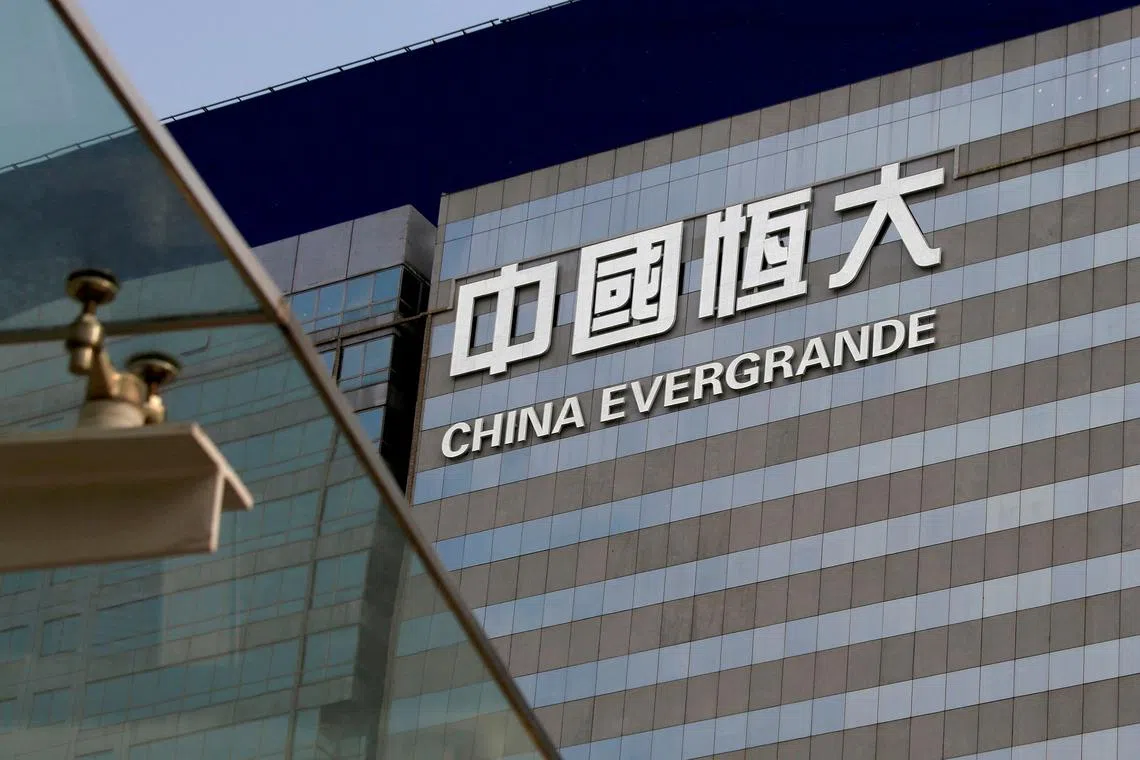China Evergrande unit gets notice for $6.3 billion loan from Shengjing Bank
Sign up now: Get ST's newsletters delivered to your inbox

Some of China’s most-indebted developers, including Evergrande, face winding-up case court hearings in Hong Kong this month.
PHOTO: REUTERS
Bengaluru- Debt-laden property developer China Evergrande Group said on Tuesday that its unit received a notice of enforcement for unrecoverable funds from Shengjing Bank.
The bank said it failed to recover funds totalling 32.595 billion yuan (S$6.3 billion), which was provided to the unit from 2020 to 2021, according to Evergrande.
In early September, state-owned companies of the Chinese north-eastern city of Shenyang bought Evergrande’s shareholding in Shengjing Bank at an auction for 7.3 billion yuan.
The Evergrande unit’s 30.99 per cent stake in Xinjiang Guanghui Industry Investment Group, which it had pledged to the bank, has now been enforced, the notice said.
Evergrande, which has about US$300 billion (S$424 billion) in debt, said the pledged equity interest has not been auctioned or sold to a third party.
Some of China’s most-indebted developers, including Evergrande, also face winding-up case court hearings in Hong Kong this month, as the nation’s property debt crisis increasingly pushes creditors to seek what little recovery they can get.
Evergrande and Sunac China Holdings are on the docket in November. Global money managers will be closely watching after both firms defaulted on dollar bonds in the past year. The looming hearings follow an order last month that a unit of developer Yango Group be wound down, the first such instance in Hong Kong against a major builder during the sector’s ongoing turmoil.
Six developers facing winding-up hearings through January have more than US$30 billion outstanding offshore bonds, according to data compiled by Bloomberg. A winding-up order could result in liquidation, potentially impacting the recovery of note holders as a liquidator takes charge of the company and manages its assets.
Chinese property firms have defaulted on dollar bonds at a record rate this year, and debt restructuring progress has often been slow. Offshore creditors have increasingly gone to courts to obtain payments. Many winding-up petitions have been used by creditors to put pressure on a borrower, according to Mr James Comber, a partner at London-based law firm Ashurst. Reuters, BLOOMBERG


